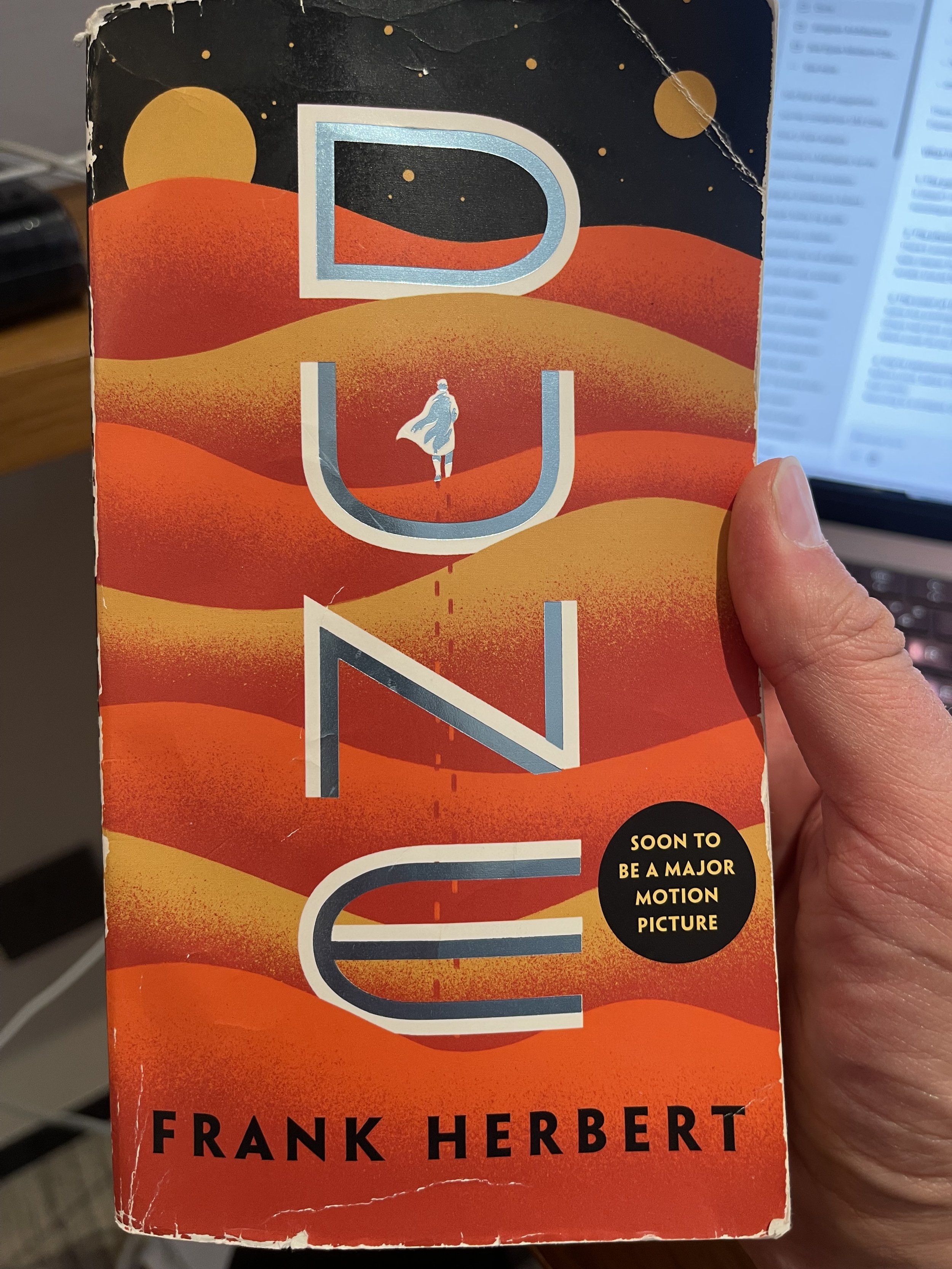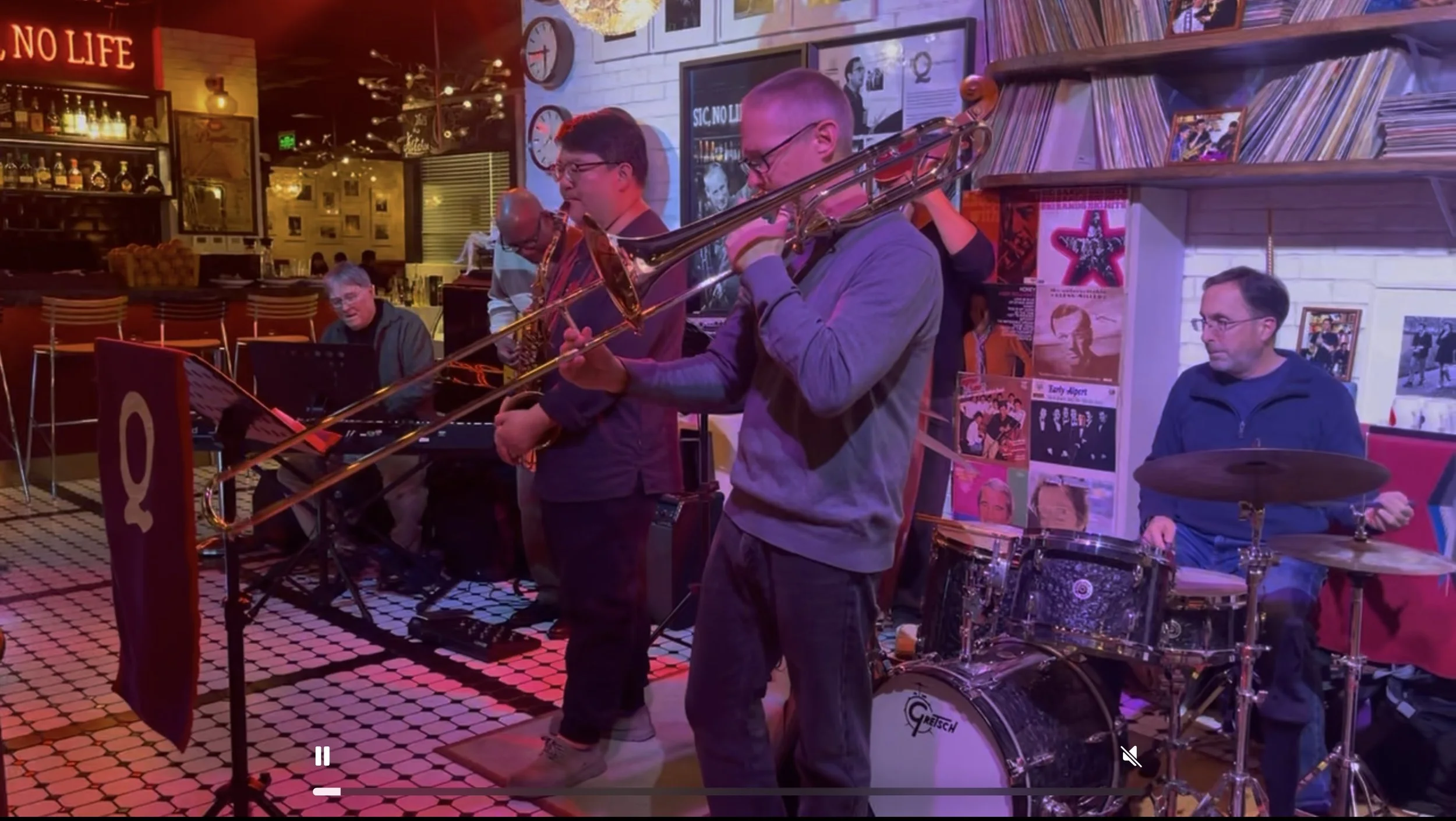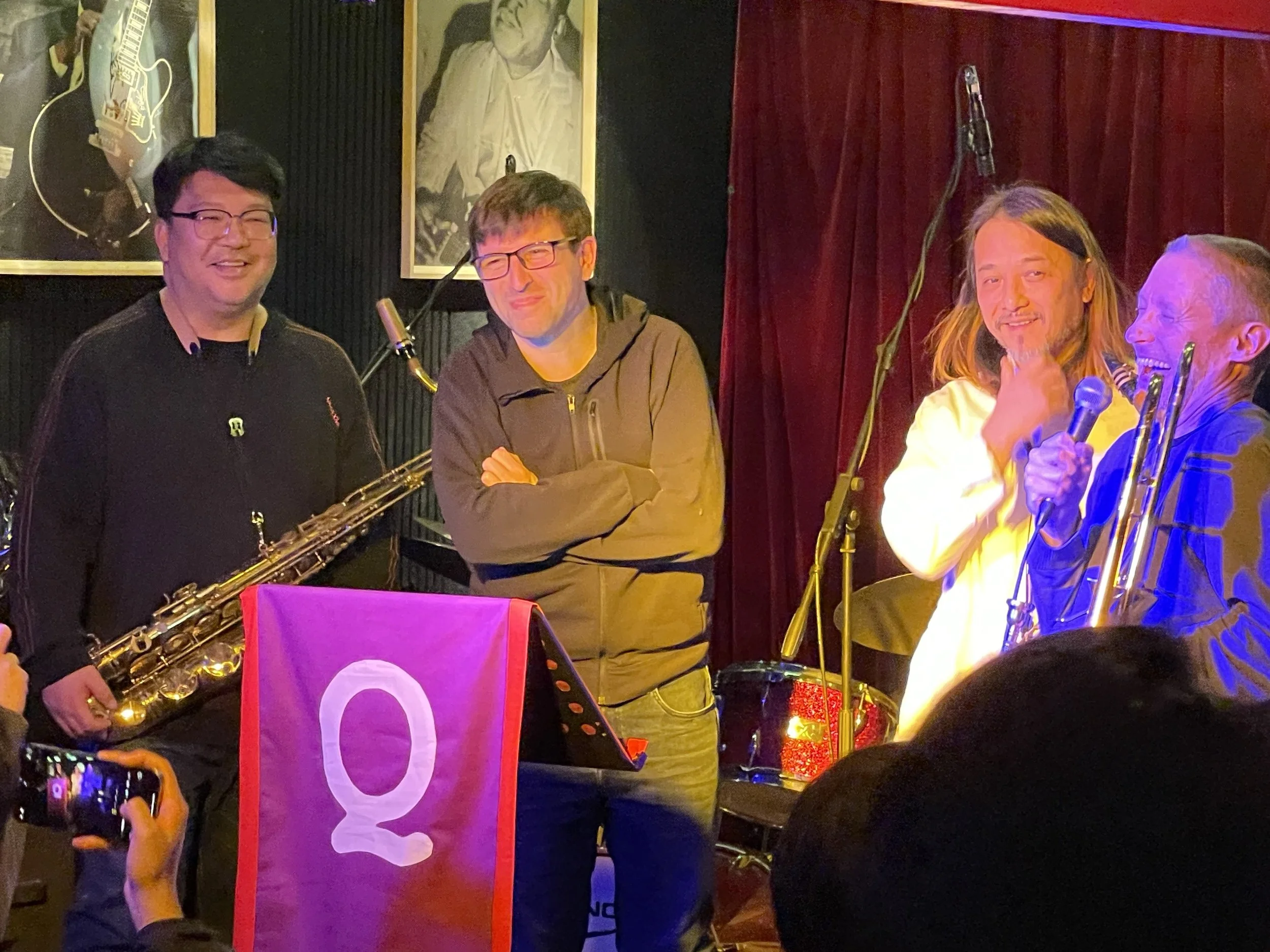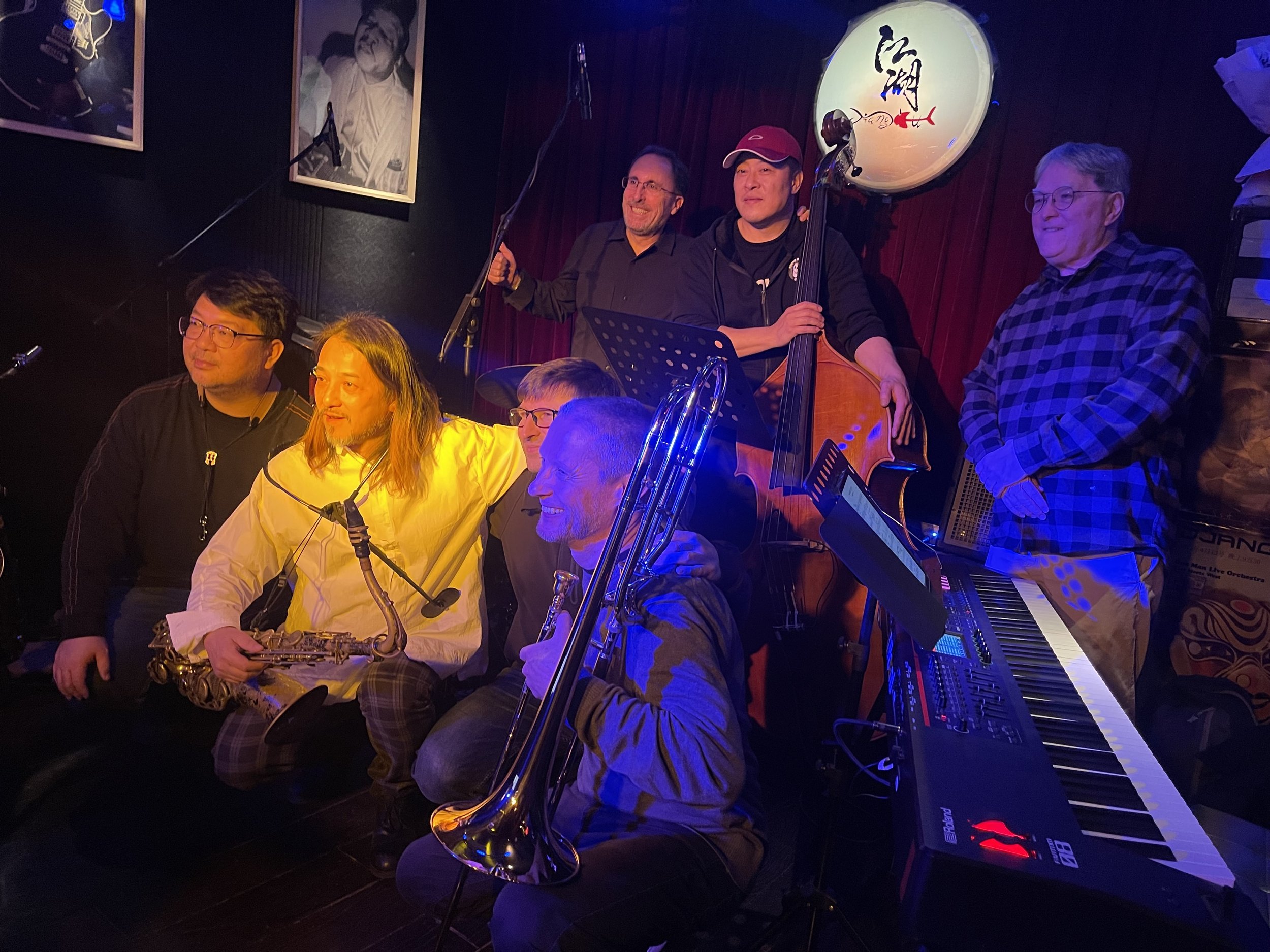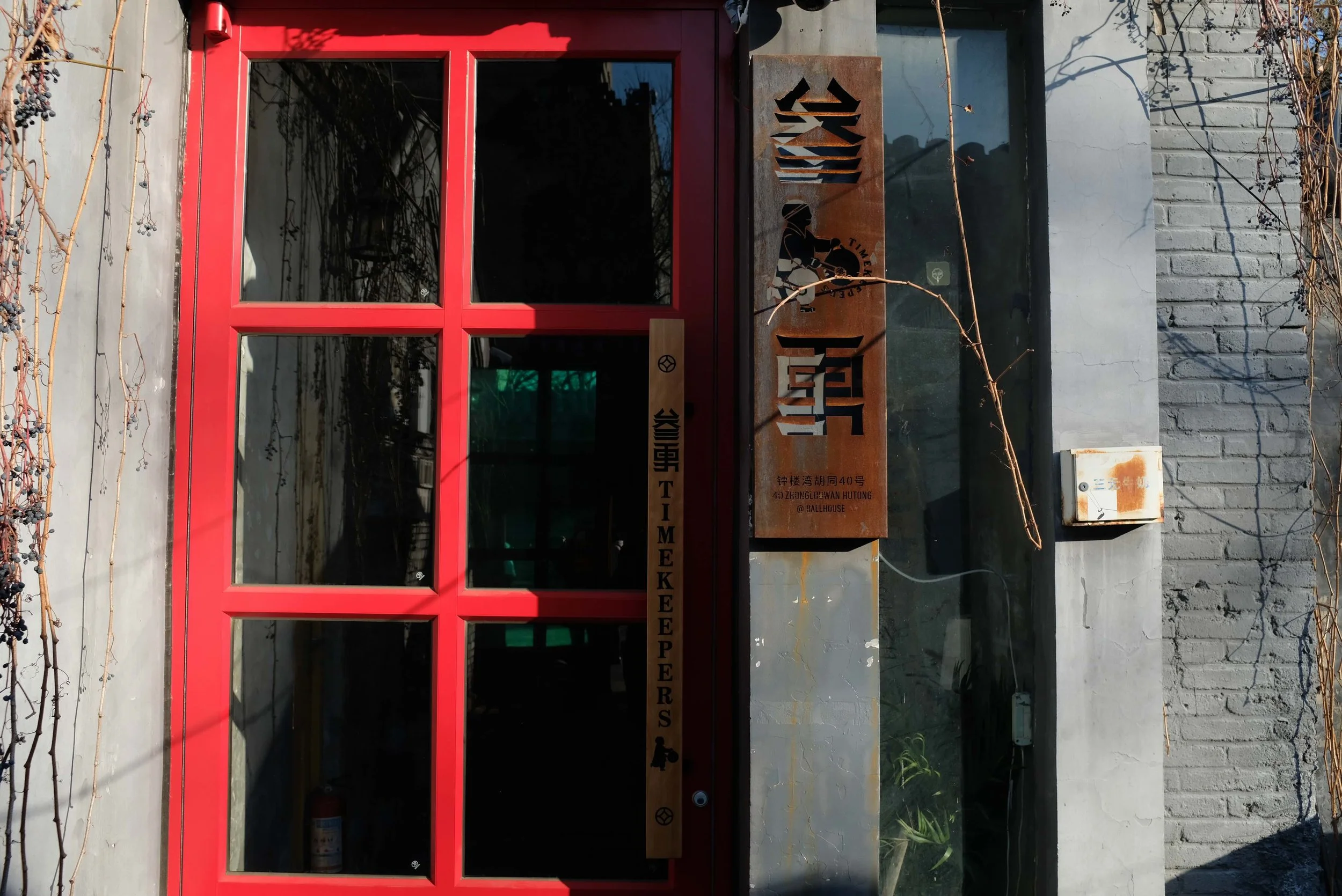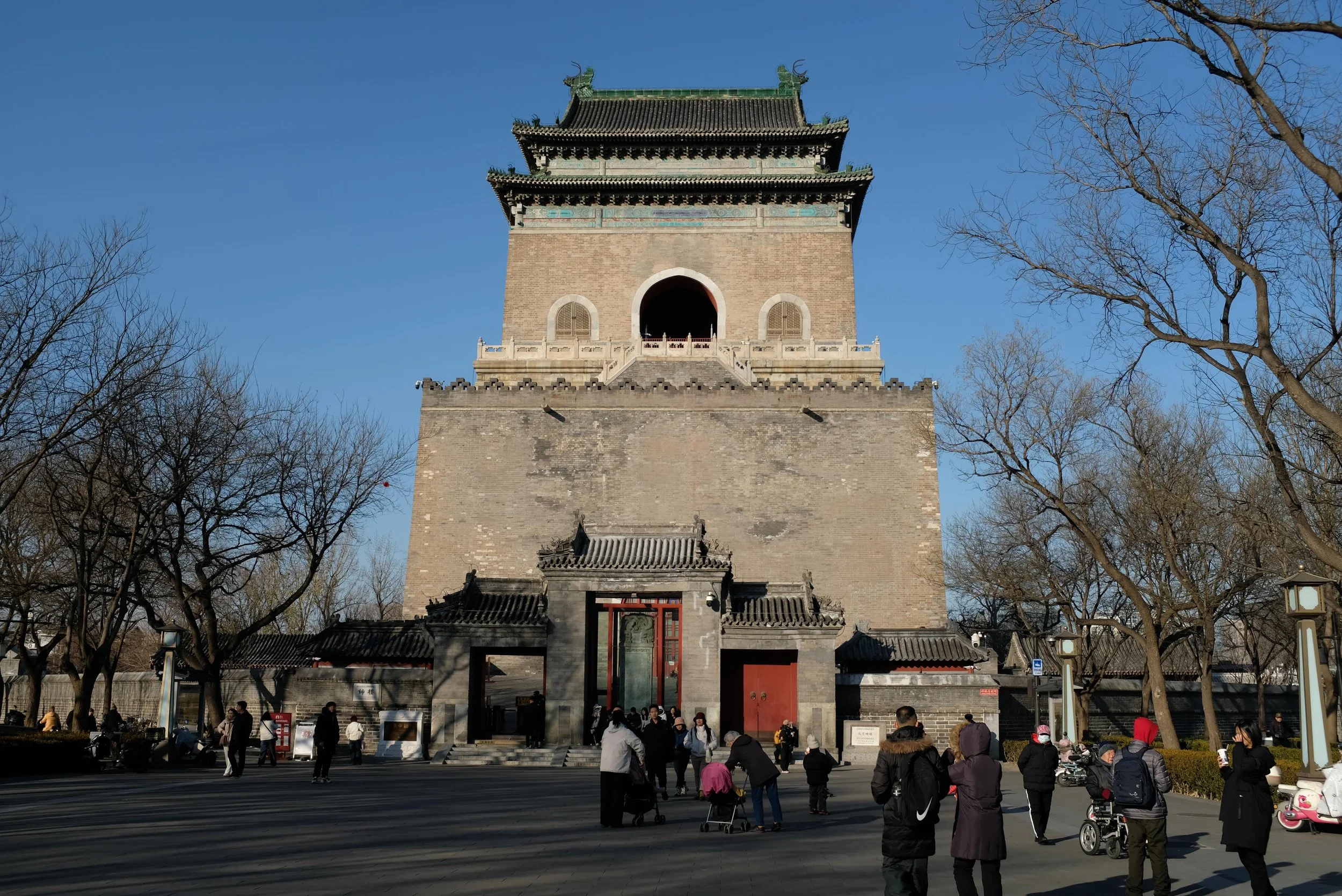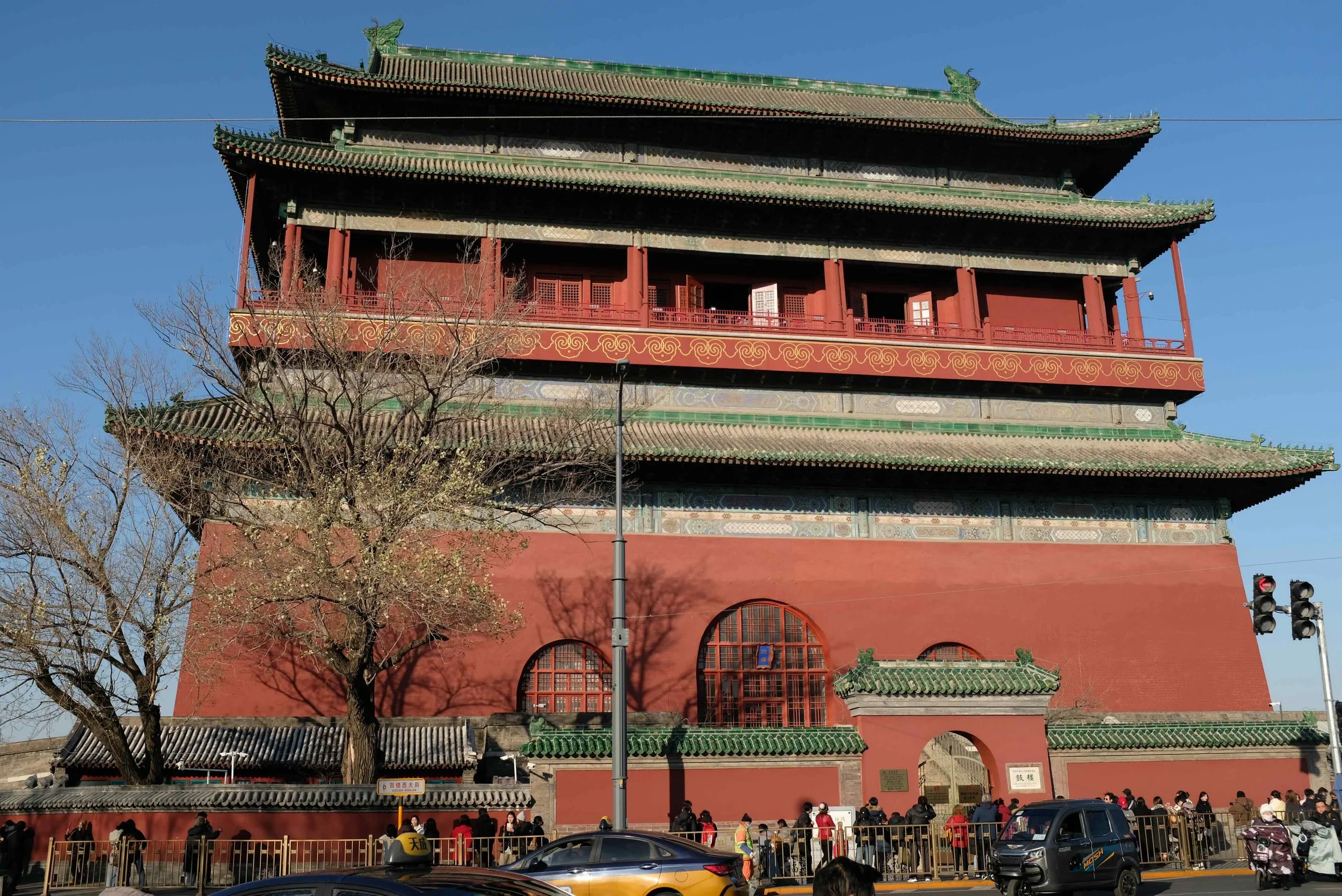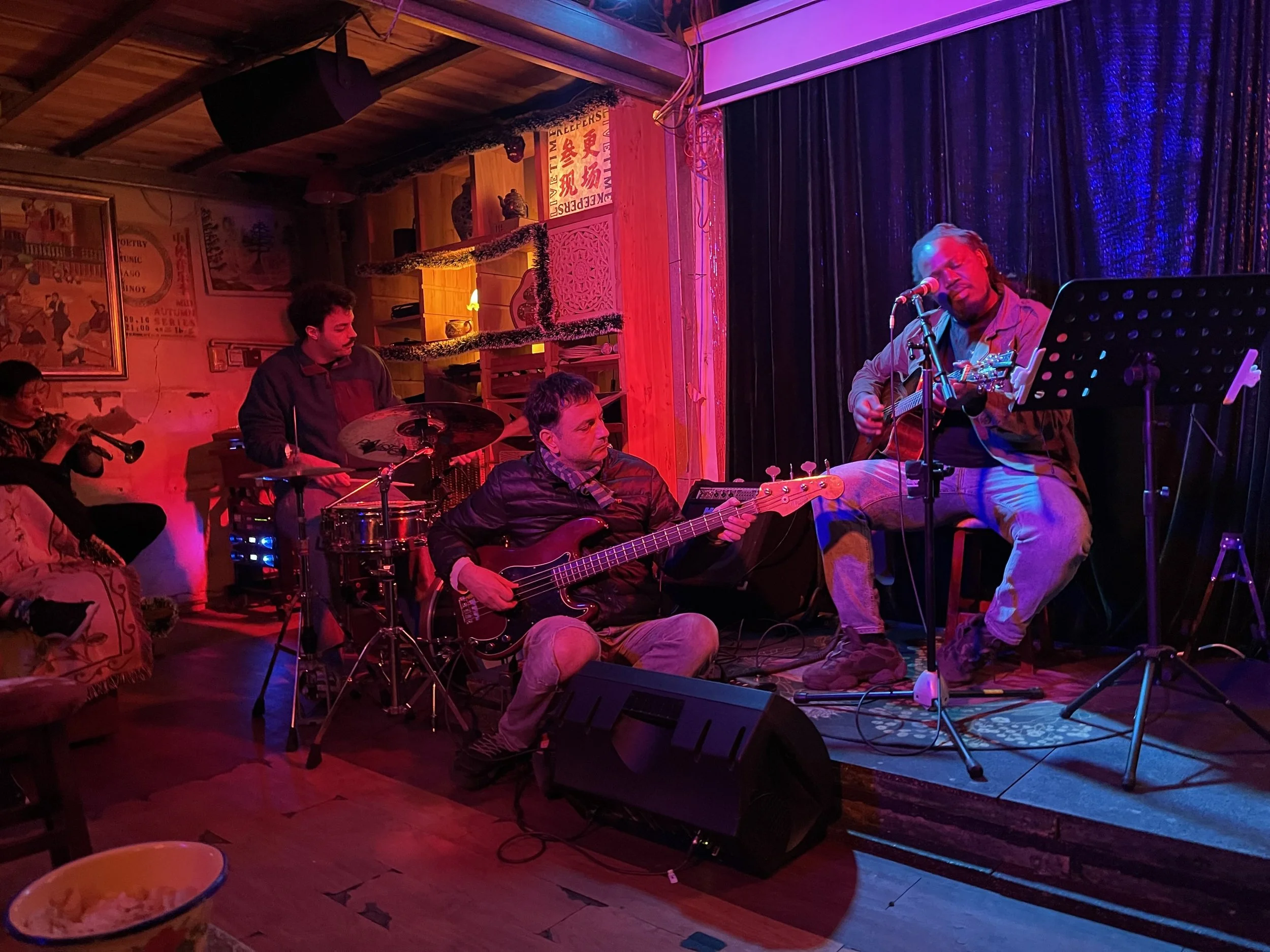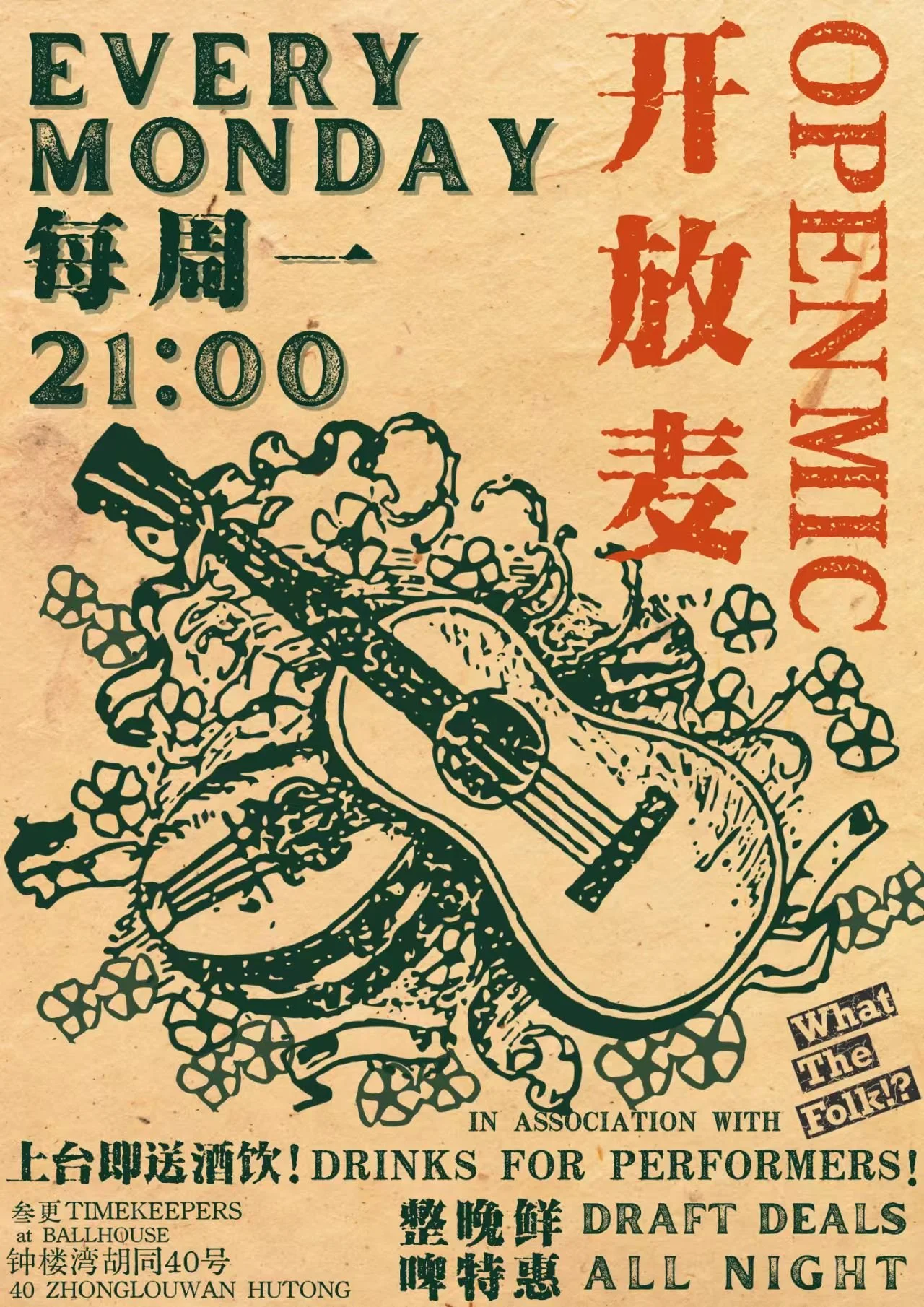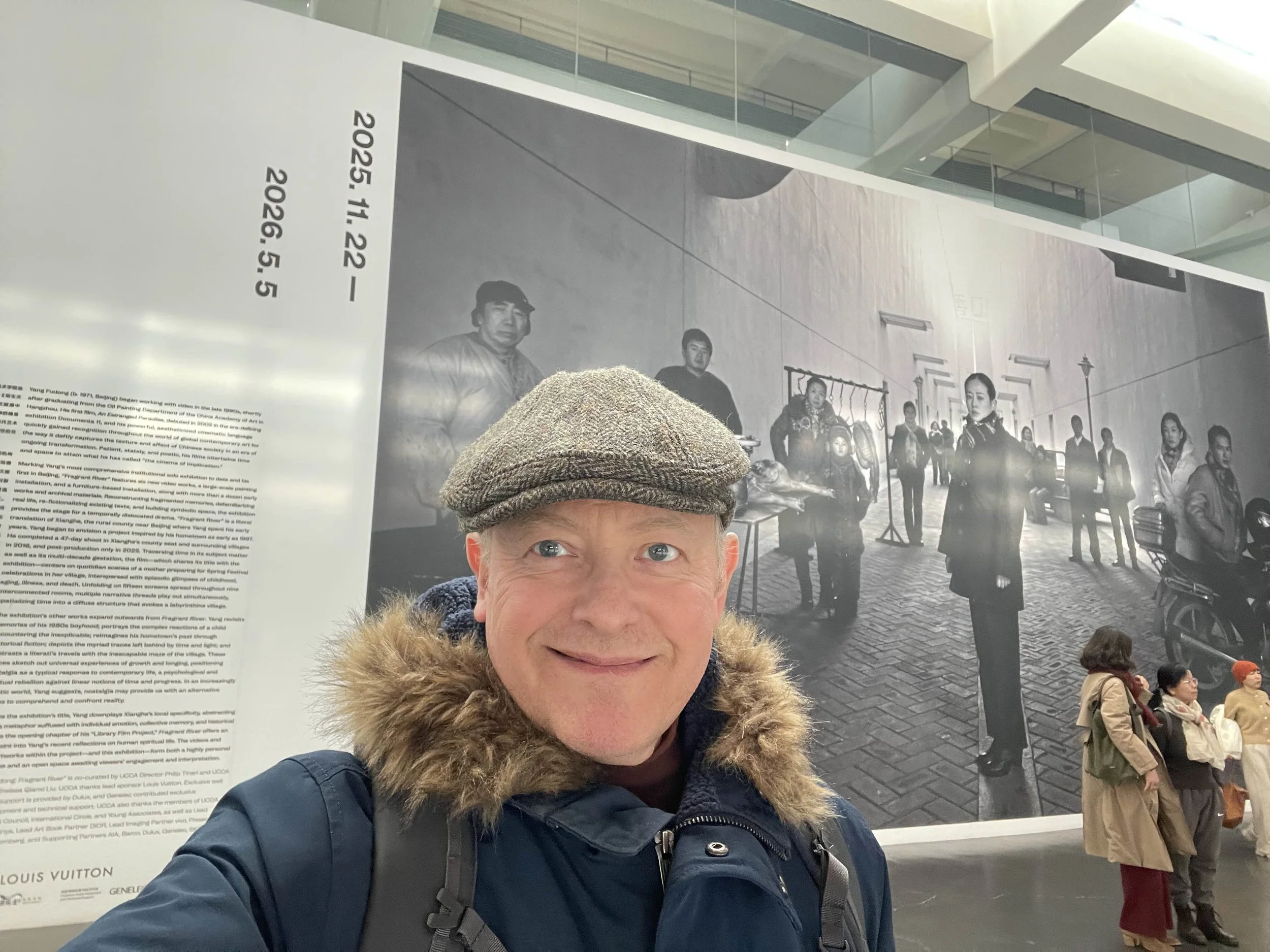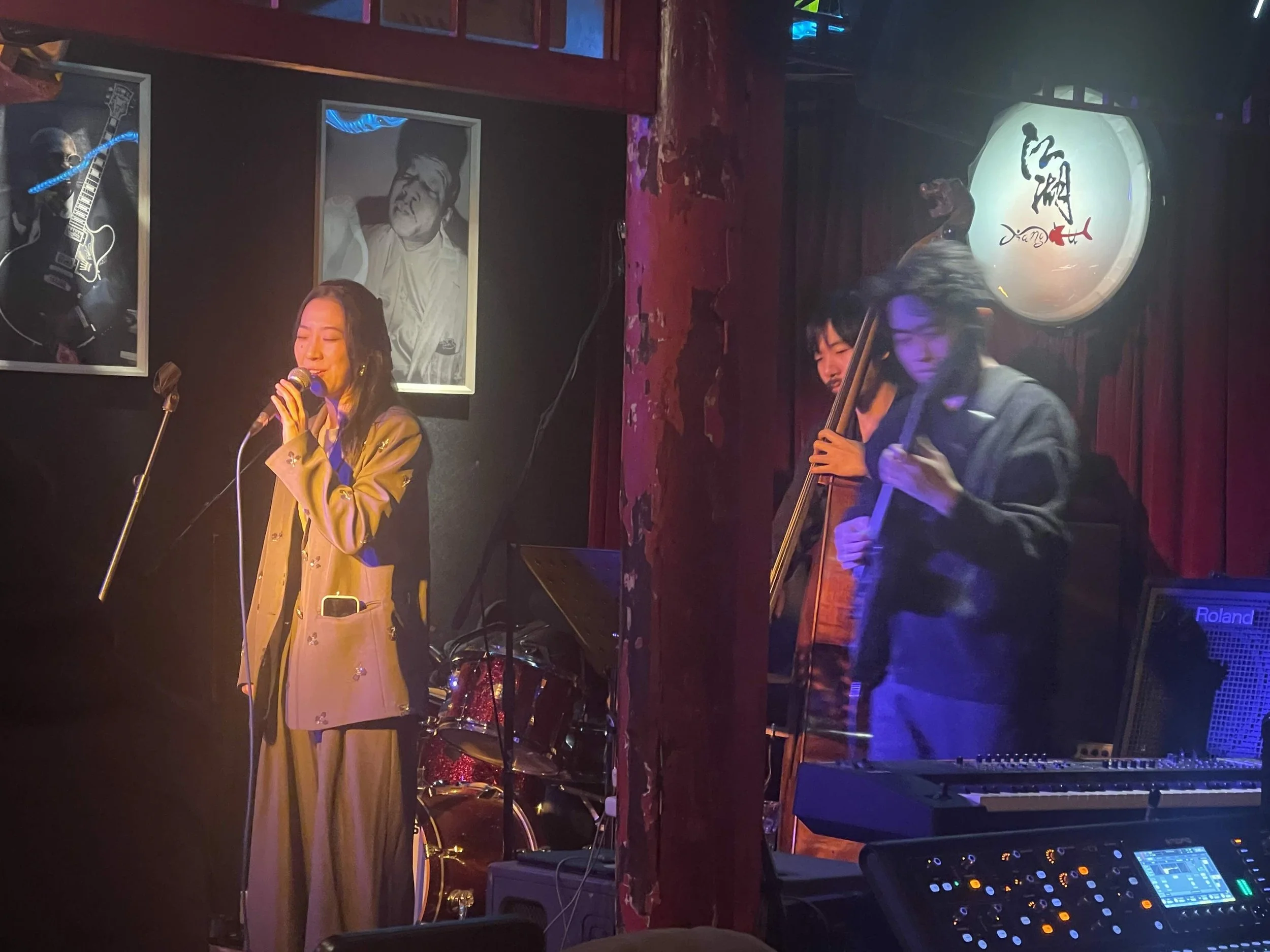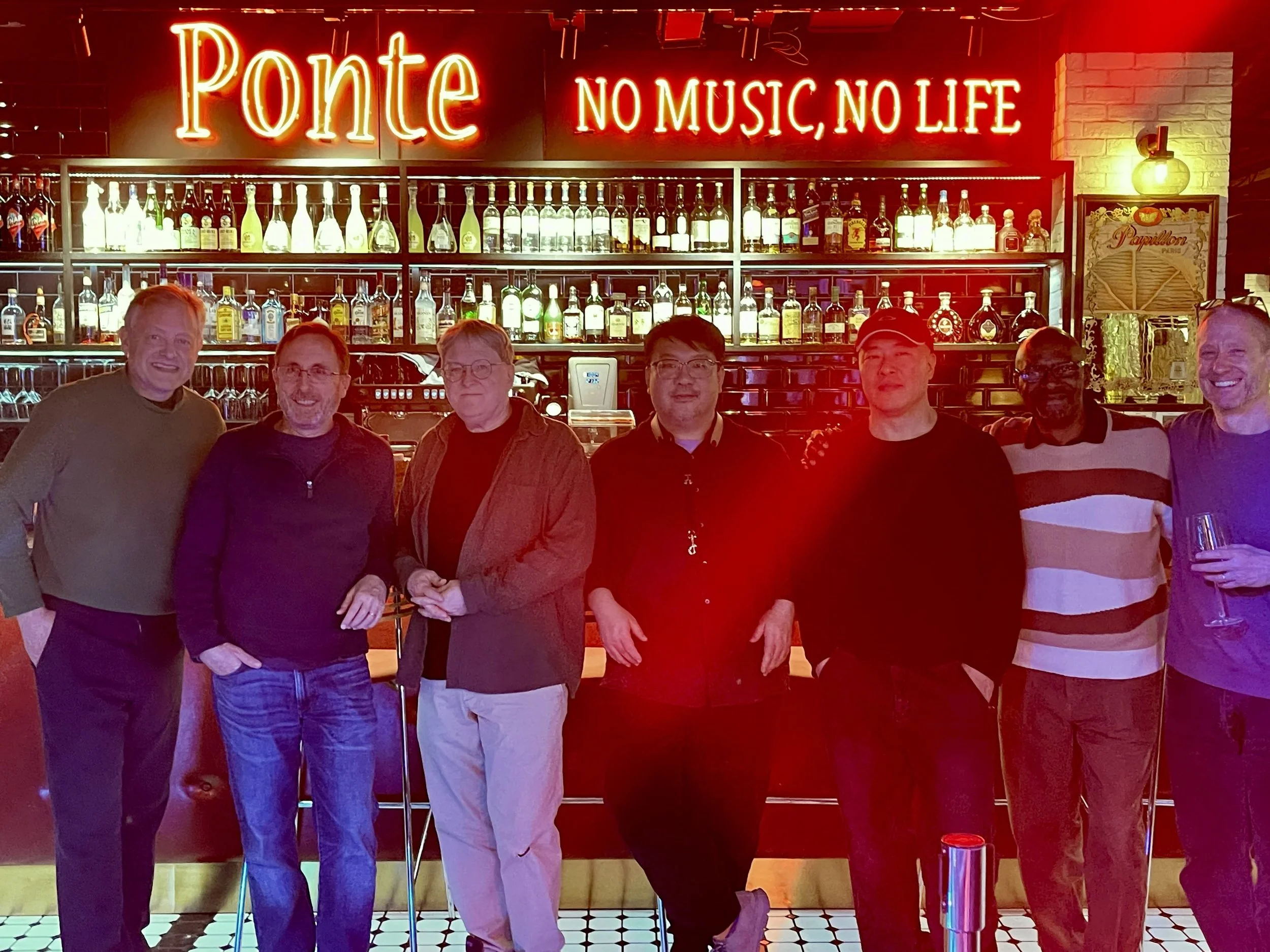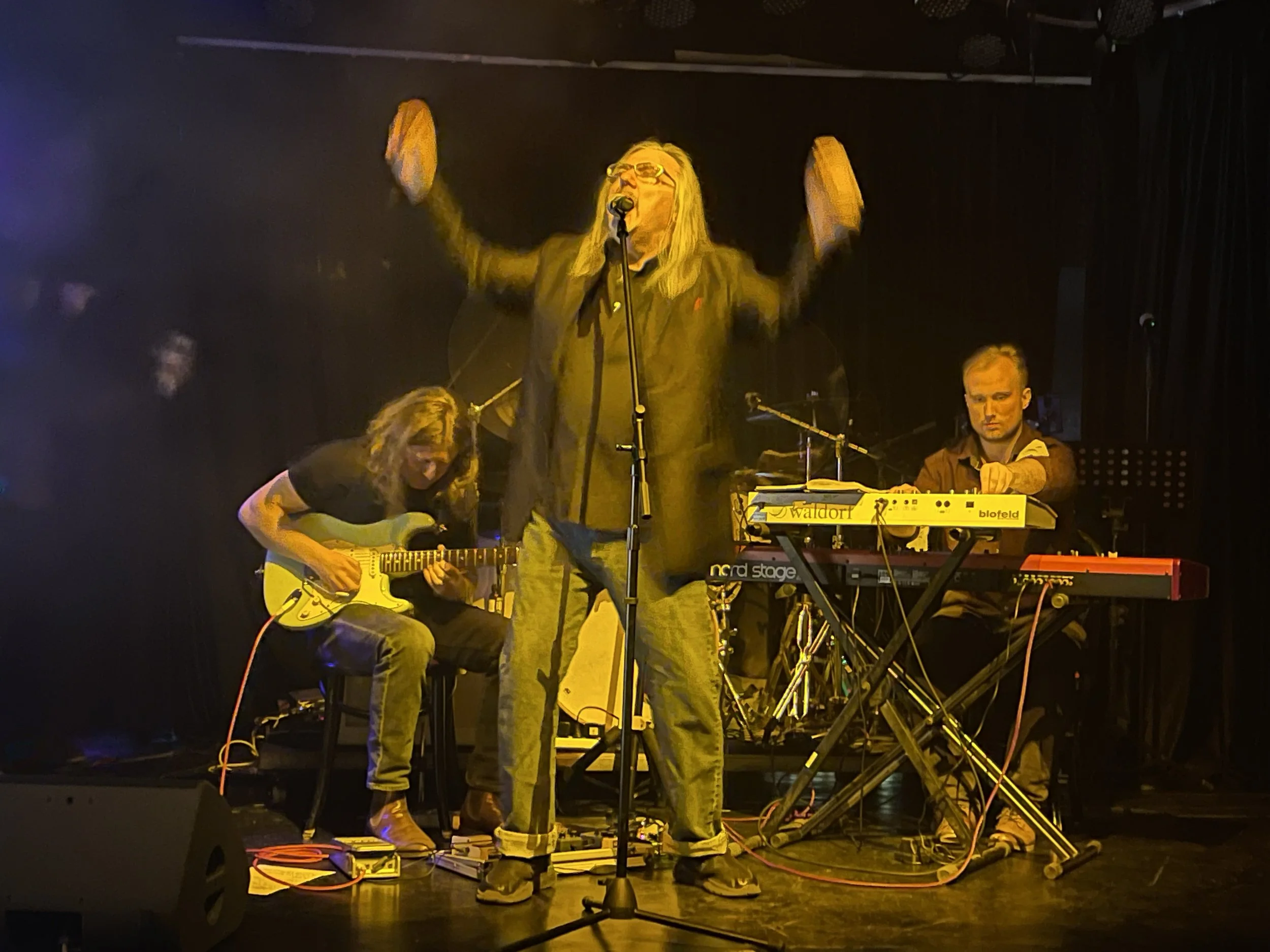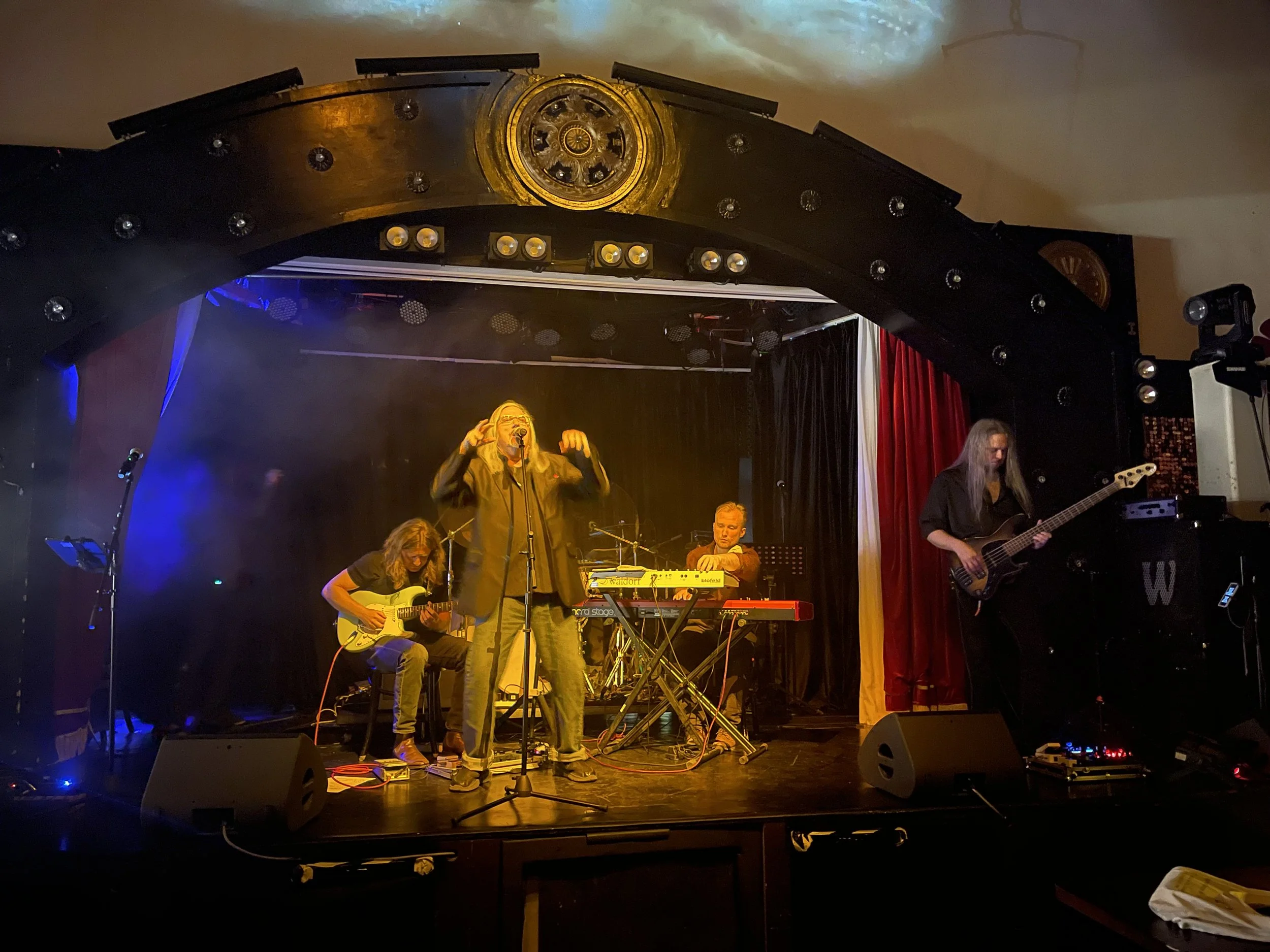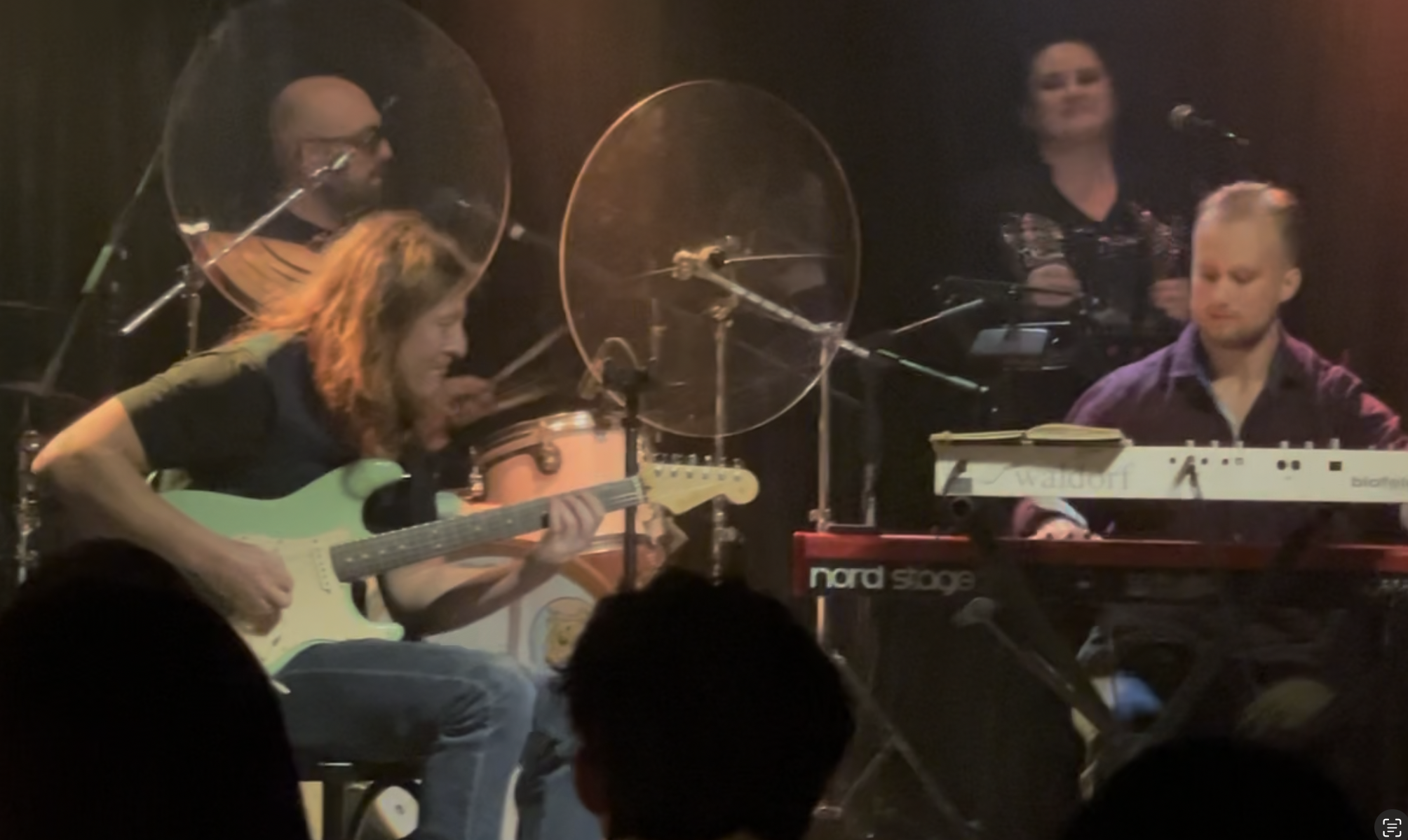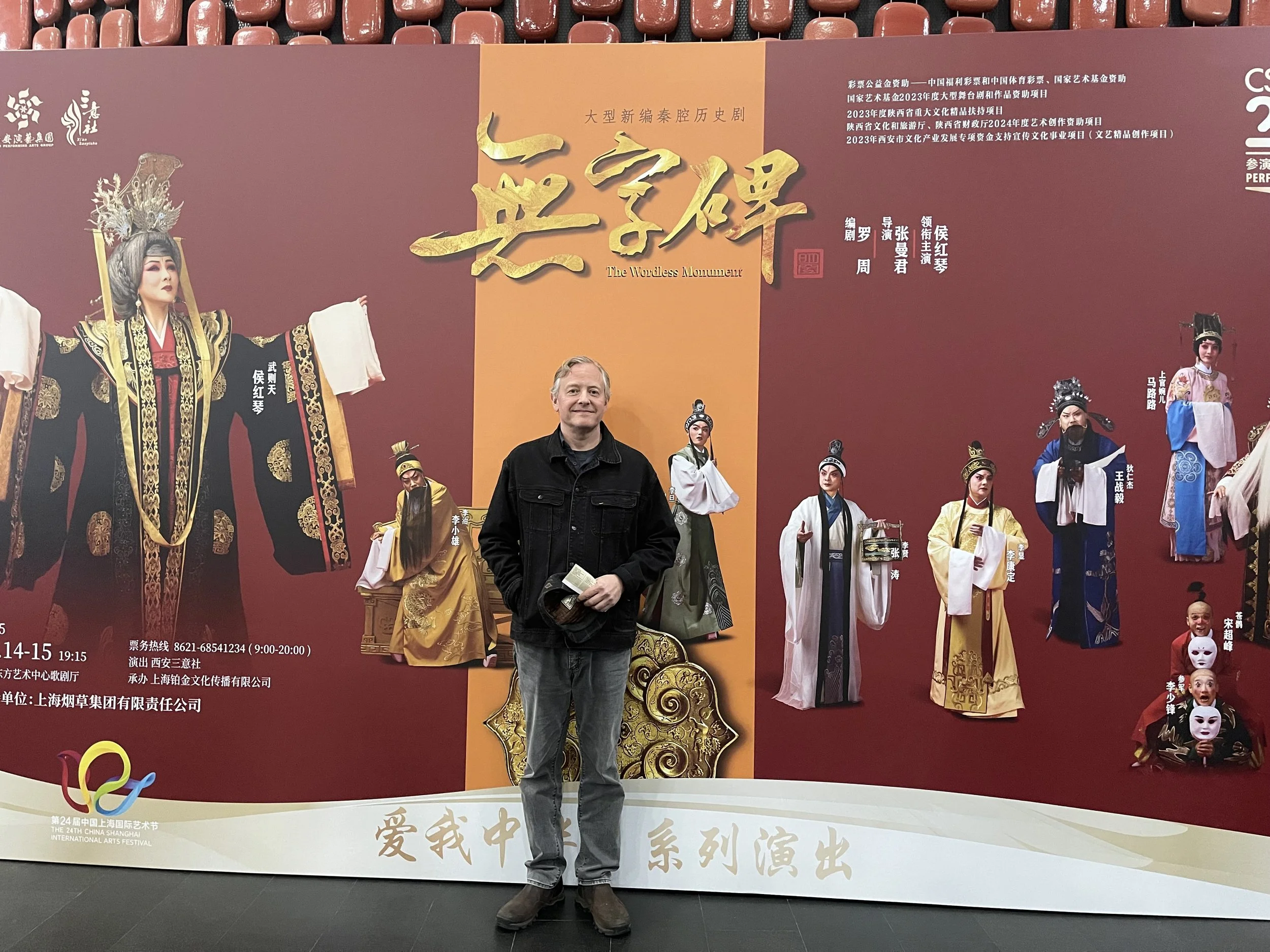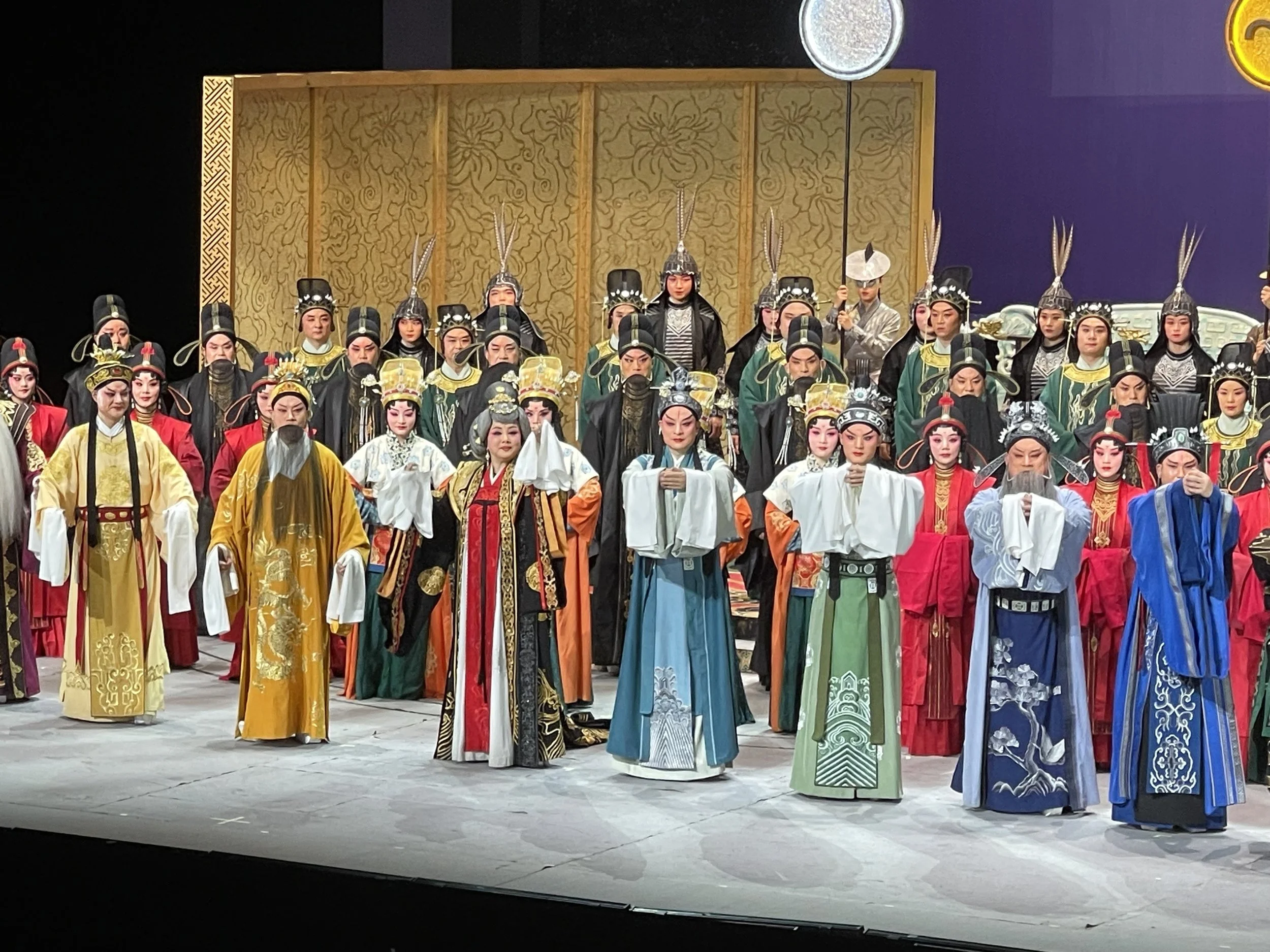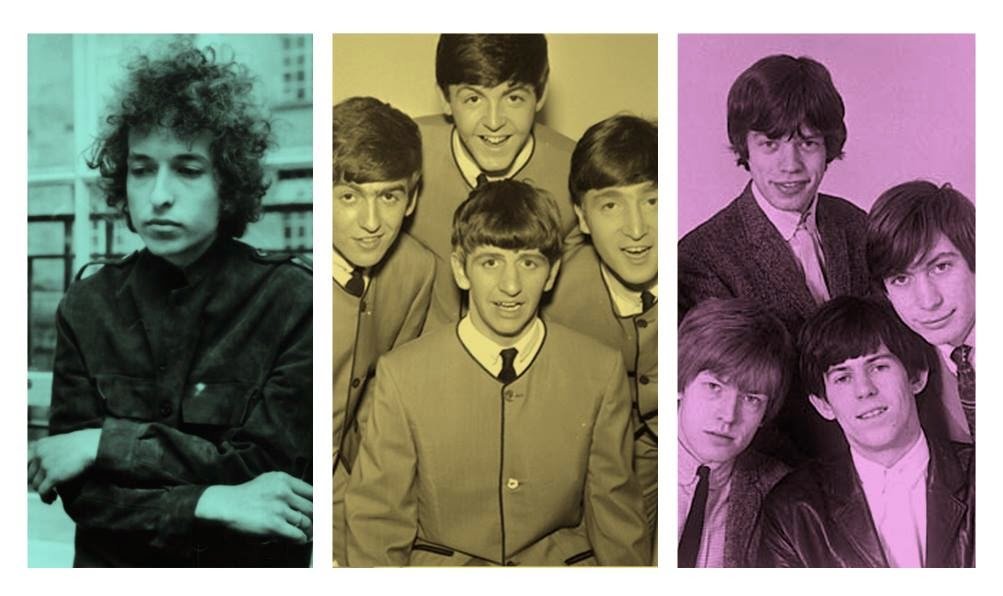There's one great photograph here at the top of Bob Dylan and Joan Baez. What an amazing, uh, power music couple they were, you know, it's, uh, no wonder that the, the movie, the filmmaker decided to make that a central focus of the film. Uh, his, his complex relationship with Joan Baez, who was brilliant in her own way, but not, not the brilliant songwriter that he was, but certainly a brilliant singer, performer, musician, uh, amazing in all those regards and that she could recognize his genius, I think was a big part of that story as well.
Um, so you've got Joan Baez, then here you have some encounter with the police and this man scratching his head. And again, I'd have to look it up. I don't recognize that person offhand.
Don't know who that is. Uh, below you have Bob Dylan on, on piano with his sunglasses. You have him in a kind of a top hat with a smirk on his face.
That was the one thing that I didn't quite like about the film, which I explained in another video, is that I think Timothee Chalamet didn't quite capture his mirth, his, uh, impish humor, I think was kind of missing in that portrayal of Bob Dylan. Um, and I don't know what these other photos are. Somebody who's an expert on this album would surely know the backgrounds of all these photos.
It was kind of like photos of him performing and photos of the times. Um, and then, and then there's a, uh, very interesting, this is probably going to be a long one. I think this is, this is going to be a rather long video only for those who really want to dig deep into, into this album.
Liner Notes by Bob Dylan
So I'm going to just read out the, uh, the liner notes here, what they call the liner notes in the back of the record. And I think this is Bob Dylan, uh, Bob Dylan's writing:
I'm standing there watching the parade feeling combination of sleepy John Estes, Jane Mansfield, Humphrey Bogart, Mortimer Snurd, Murph the Surf, and so forth.
Erotic hitchhiker wearing Japanese blanket gets my attention by asking, didn't he see me at this hootenanny down in Puerto Vallarta, Mexico? I say, no, you must be mistaken. I happen to be one of the Supremes. Then he rips off his blanket and suddenly becomes a middle-aged druggist up for district attorney.
He starts screaming at me. You're the one that's been causing all them riots over in Vietnam. Immediately turns to a bunch of people and says, if elected, he'll have me electrocuted publicly on the next 4th of July.
I look around and all these people he's talking to are carrying blow torches, needless to say. I split fast, go back to the quiet, nice country. I'm standing there writing what on my favorite wall when who should pass by in a jet plane but my recording engineer.
I'm here to pick you up and your latest works of art. Do you need help with anything?
Pause.
My songs are written with the kettledrum in mind, a touch of any anxious color, unmentionable, obvious, and people perhaps like a soft Brazilian singer.
I have given up at making any attempt at perfection. The fact that the White House is filled with leaders that have never been to the Apollo Theater amazes me. (That's a good one, actually.)
Why Allen Ginsberg was not chosen to read poetry at the inauguration boggles my mind. Here he's giving his influences. If someone thinks Norman Mailer is more important than Hank Williams, that's fine.
I have no arguments and I never drink milk. I would rather model harmonica holders than discuss Aztec anthropology, English literature, or history of the United Nations. I accept chaos.
I am not sure whether it accepts me. I know there are some people terrified of the bomb but there are other people terrified to be seen carrying a modern screen magazine. Experience teaches that silence terrifies people the most.
I am convinced that all souls have some superior to deal with, like the school system, an invisible circle of which no one can think without consulting someone. In the face of this, responsibility, security, success mean absolutely nothing. I would not want to be Bach, Mozart, Tolstoy, Joe Hill, Gertrude Stein, or James Dean.
They are all dead. The great books have been written. The great sayings have all been said.
I am about to sketch you a picture of what goes on around here sometimes, though I don't understand too well myself what's really happening. (There's a nice admission). I do know that we're all going to die someday and that no death has ever stopped the world.
My poems are written in a rhythm of unpoetic distortion, divided by pierced ears, false eyelashes, subtracted by people constantly torturing each other with a melodic purring line of descriptive hollowness, seen at times through dark sunglasses and other forms of psychic explosion. A song is anything that can walk by itself. I am called a songwriter.
A poem is a naked person. Some people say that I am a poet.
End of pause.
And so I answer my recording engineer, yes, well, I could use some help in getting this wall in the plane. So yeah, that's Bob Dylan's stream of consciousness, sort of explanation of this album. And it's interesting.
He's saying, I am a poet, but I'm also not a poet. I'm a songwriter. But some people call me a poet.
You can see some of his influences here, like, got to go get my medicine. All right, I have returned, having a little whiskey soda. I think that will go well with this discussion about psychedelic states.
I'm not a consumer of psychedelia… of psychedelic …psychedelics myself. This [alcohol] is pretty much the only drug that I limit myself to. But alcohol, a little drink now and then doesn't hurt.
As long as you don't overdo it. Yeah, and I want to get back to talking about his influences. Hank Williams, he mentions, he mentions at some point, Allen Ginsberg, the great beat poet.
Beat Poets, Beatles, and Psychedelic Influences
So obviously he's, the beat poets were a great influence on him for this album. He was reading the beat poets, he was reading the beat generation authors like Kerouac, Ginsberg, maybe William Burroughs, really kind of digging into that sort of that literature that was heavily influenced by drugs. Let's face it.
I mean, drugs are a big part of the culture here in the 1960s. At this point, I think it's safe to say that he was a regular user of marijuana, maybe LSD. Those definitely influenced his lyrics.
I mean, it's almost impossible to explain this kind of creative mind without some sort of narcotic influence, which I think is totally overlooked in the film. I think that's another critique of the film is that, yeah, they make some little mild allusions to it. Maybe at one point he's smoking a joint, but they don't really say it, right? Alcohol seems to be a part of the scene in the movie, but not drugs, at least not overtly.
But obviously, they had a huge influence on him when he was at this stage in his songwriting career. And there's that famous episode, I think it was, I can't remember if it was ‘64 or ’65 [it was August 1964] where he introduces the Beatles of all people to marijuana. Can you imagine? I mean, that event in itself is such a huge moment in the history of popular culture, right? Because Dylan's influence on the Beatles was enormous.
And they admitted that they were fascinated by his music. I think this was one of their big albums that they loved. Obviously, there's so many influences that Dylan's music and his lyrical style had on the Beatles' development.
Their breakthrough album, Rubber Soul, and then Revolver and Sgt. Pepper, I think they were all influenced by Dylan's lyrics, Dylan's style. Even though the Beatles still continued to write in a different way, and their songs were kind of tighter and more melodic and more maybe intricate chord-wise, and also chords and melody and structure, and also more compact and pop-oriented, whereas Dylan was writing just verse after verse. I mean, so yeah, this is such an important album in so many ways.
His influence on the music world, on the world of lyrics, on the world of pop music, on the Beatles. I mean, again, you could easily write a doctoral dissertation or a book just on this album and its influence in the world. So enough said about that.
Let's go into... So I've decided to use this book, Bob Dylan, The Lyrics, to just go through song by song because it's just a little easier. The lyrics in this book, they're not accompanied by chords or any musical elements. It's just lyrics straight out as if he was writing poetry.
Songs on the Album
So we can start with the list of songs that are on this album. There's Subterranean Homesick Blues, She Belongs to Me, Maggie's Farm, Love Minus Zero Slash No Limit, Outlaw Blues, On the Road Again, Bob Dylan's 115th Dream, Mr. Tambourine Man, Gates of Eden, It's Alright Ma, I'm Only Bleeding, and It's All Over Now, Baby Blue. And in this collection, they include an early version of Outlaw Blues as well as Farewell Angelina, which was also performed by Joan Baez.
And it appears in the film A Complete Unknown as well. At least she sings a verse of it, I think, at one of the festivals, the festival scenes. And Love is Just a Four-Letter Word.
I also am a big fan of Farewell Angelina. I think that's such a wonderful song. And I've played that, you know, I play that song as well.
In fact, I should probably record that one next. But yeah, so you get a sense, bringing it all back home. The title, interesting that it's about bringing, coming back home.
So there's a sense of a homecoming. But I think there's also a sense of you can't go back home. Again, once you're on the road, you're an outlaw.
You're an outlaw on the road, right? That's Outlaw Blues on the road again. It's All Over Now, Baby Blue, suggesting the end of something and maybe the beginning of something else. You've achieved a certain state of knowledge about the world.
You just, you can't go back to the comforts of home and your childhood. You're now out there in the world. You're experiencing the world in all of its, he's really, like I said, prophetic.
He's showing the world as it is. And I think that's one of the functions of these narcotics, for want of a better word, these mental stimulants, these psychedelic substances that he takes to enhance his perspective and his songwriting. They kind of blow off the, they open the doors of perception, as Aldous Huxley famously said.
And they allow you to see things in a different way and experience things differently and maybe throw off the veils and the shadows on certain realities. So I think that's also what this album is about. It's coming to a realization about the way the world is, something that he's been moving towards in his previous albums.
But his previous albums show a kind of younger, maybe more naive Bob Dylan. And now he's sort of reached this threshold where he's no longer so naive. He's seeing the world with different eyes.
So let's get into it. I know that was a huge, long preamble. May have to cut it down a bit, but we'll see.
Subterranean Homesick Blues
That's the one that starts out with Johnny's in the basement mixing up the medicine. And that sounds itself like a drug reference.
It's like right at the beginning of the album, he's making kind of an obvious drug reference, mixing up the medicine. I'm on the pavement thinking about the government. So I'm on the pavement.
What does that mean? Is he a bum? Is he busking on the pavement? Is he begging on the pavement? Why is he thinking about the government? Why is he on the pavement? The man in the trench coat, badge out, laid off. That almost sounds like a spy. We think of detectives or spies as wearing trench coats, this kind of disguises.
Badge out, obviously some kind of authority figure or some kind of FBI, who knows. I'm sure by this time, and that's the other thing about drugs, they make you paranoid. Everybody's out to get you.
Everybody's following you. Maybe by this time, he's kind of thinks he's being tailed by the FBI or something. And that could be, I don't know.
I don't know much about his relationship with the FBI. I know a lot more about John Lennon's. But yeah, it's a good question.
Says he's got a bad cough, wants to get paid off. Look out kid, it's something you did God knows when, but you're doing it again. It's kind of like, this is like a rap.
It's almost like a rap. You know, he's just throwing out these lines. It's like he's the precursor of rap music.
You know, you better duck down the alleyway looking for a new friend, the man in the coonskin cap and the big pen wants $11 bills. You only got 10. And then there's this mysterious character, Maggie.
Maggie comes fleet foot, face full of black soot, plants talking that the heat put plants in the bed, but the phone's tapped anyway. So again, the paranoia go up, up, up, up, up. It's my dog walking around making noise.
Maggie says that many say they must bust in early May orders from the DA. So again, drug busts, kind of the, you know, people being followed, people being busted, a lot of kind of, yeah, just paranoid feelings about the government, about authority, about um, people trying to get, get you for, for doing drugs or for whatever subversive activities that you are engaged in. You don't need a weatherman to know which way the wind blows.
I think that's a reference to the, to the Weathermen, right? So 1960s, obviously a lot of, a lot of references to kind of sixties counterculture, right? Get sick, get well, hang around the inkwell, ring bell, hard to tell, right? Jump bail, get jailed, join the army if you fail, you're going to get hit by cheaters, losers, uh, six time users, cheaters, six time losers, hang around the theaters. So again, this sort of stream of consciousness, uh, free verse that he's doing here, get born, keep warm, short pants, romance, learn to dance, get dressed, get blessed. So it's sort of like daily life, uh, especially for young people thinking about their looks, thinking about what they're going to wear, going dancing, having fun, uh, sexual sort of imagery, uh, buy, please him, buy gifts, don't steal, don't lift, exhortations to be a good person when you're young.
They put you on the day shift, look out kid, keep it all hid, jumped in down a manhole, like yourself. It's almost like he's just thinking about his life. Like you got to keep things covered.
You know, um, you can be subversive, but you have to do it in a subtle way. So his, his messages don't pound you over the head, right? They're kind of more subtle designed for a, a, an era when people were being watched, phones were being tapped, people were being followed. So yeah, it's, it's really, it seems to be a, he's, he's starting the album with this song about the counterculture sung at the street level.
You know, here's what I learned from the streets. You know, you got to watch out, you got to do this, you got to do that. Got to watch your back.
Subterranean homesick blues, right? So subterranean, keeping underground. It's all about being underground, being a countercultural figure. So he's now identifying fully with the counterculture.
He was in the folk movement, which was a little different. And now he's kind of part of this countercultural movement, which involves drugs, which involves phones being tapped and so on and so forth.
She Belongs to Me is the next song.
She's got everything she needs. She's an artist. She don't look back.
So this is a more sweet song about a woman that he admires, right? We don't know who the woman is. I don't know if there's any, there must be some speculation as to who she is in this, in this song, but she's an artist. She can take the dark out of the nighttime and paint the daytime black.
Wow. That's powerful. You will start out standing proud to steal her, anything she sees, but blah, blah, blah.
You will wind up peeking through her keyhole down in your knees. So she obviously has some power over him or over whoever you is, right?
You start out standing, you end up on your knees. She never stumbles. She's got no place to fall.
It's a bit of a blues structure, so yeah, you repeat the first line twice and then you've got the punch line at the end. So it's very much a blues structure, but the music is not, does not sound like standard blues. She's nobody's child.
The law can't touch her at all. Wow. So we were talking about the law, we were talking about authority, we were talking about the government and being chased and being followed and pursued in the previous one.
Now it's like the law, she's beyond the law. Law can't touch her. She wears an Egyptian ring, sounds like, it almost sounds like the gypsy woman that he seems to be continually obsessed with in his songs.
Wearing an Egyptian ring, some kind of mystic. She wears an Egyptian ring that sparkles before she speaks. She's a hypnotist collector.
You are a walking antique. His songs are so full of humor. He just drops these killer lines.
You are a walking antique. Bow down to her on Sunday. Salute her when her birthday comes.
So again, a man who's worshiping this woman, who's down on his knees, who's bowing to her, giving her birthday presents, almost like she's a goddess, deserving all of his worship and attention. For Halloween, give her a trumpet and for Christmas, buy her a drum. So that's She Belongs to Me.
That's, I would say, you know, a sweeter, more approachable song in this collection of songs from the album. And then we have Maggie again, the mysterious Maggie.
Maggie's Farm.
I ain't gonna work on Maggie's Farm no more. And this one is kind of a farmhand song, so it kind of, it harkens back to to Woody Guthrie and the songs about farmhands, the songs about the dust bowl and the depression era. I ain't gonna work on Maggie's Farm no more.
So it's the voice of, you know, definitely a blue-collar worker, you could say, a farmhand down on his luck, who's just working for scraps on this mysterious Maggie's Farm. I ain't gonna work for Maggie's brother no more. I ain't gonna work for Maggie's pa no more.
I ain't gonna work for Maggie's ma no more. I ain't gonna work on Maggie's farm no more. So, you know, and then he describes each of those characters on the farm and how they abuse him in different ways as a worker.
So it's kind of a, yeah, it's sort of a pro-labor song, anti-management, pro-labor kind of song. It's a really powerful song. It's one of his rock and roll songs, so that's, you know, this is one thing that I haven't mentioned yet, but if you watch the film, it's obvious that, you know, this was his breakthrough rock and roll album when he was, I wouldn't say he was trying to become a rock star by any stretch, but he was using the methods of rock and roll to get his points across.
So, you know, he brought blues musicians into the studio to work with him, like Paul Butterfield and others. I mean, this is when he was beginning to do that. I guess Highway 61 Revisited is kind of even more rock and roll in that respect with like Rolling Stone.
I'm getting a little tired, but hopefully a little liquid courage will keep me going. I do want to finish this video. I feel whiskey is the appropriate drink for Bob Dylan for some reason.
This is Jack Daniels, by the way.
Love Minus Zero/No Limit.
My love, she speaks like silence without ideals or violence.
So this, again, is kind of a sweet, sweet love song, you could say, but it's also a mysterious love song. It's not like, I love you, I hope you love me too, that kind of song. It's more using poetic imagery to explore the theme of love.
She doesn't have to say she's faithful, yet she's true like ice, like fire. People carry roses, make promises by the hours. My love, she laughs like the flowers, valentines can't buy her.
So all of those kind of commercialized ways that we express our love, valentines and flowers and so, doesn't really apply here. In the dime stores and bus stations, people talk of situations, read books, repeat quotations. There's a story here, but it's a bit obscure.
It's not easy to discern. It is a little bit more stream of consciousness. Read books, repeat quotations, draw conclusions on the wall.
Some speak of the future. My love, she speaks softly. She knows there's no success like failure and that failure is no success at all.
And then he drops this line, this, again, killer like bomb. There's no success like failure and failure is no success at all. Great paradox in the likes of Yogi Berra or Ringo Starr even.
The cloak and dagger dangles, madam lights the candles. I like his, what I was talking about earlier today about near rhymes or slant rhymes. He uses a lot of slant rhymes in his, in these songs.
Dangles and candles. Ceremonies of the horsemen, even the pawn must hold a grudge. Statues made of matchsticks crumble into one another.
So, it's just kind of litany of imagery that you can't quite put a finger on it. It means something, but you don't know quite what it means. My love winks, does not bother.
She knows too much to argue or to judge. So, it seems to be a very wise woman. And again, kind of contrasting to she belongs to me, which is more about worshipping this woman who has some kind of power over you.
In this one, it's more, you get a sense of a wise woman. My love winks, she does not bother. She knows too much to argue or to judge.
The bridge at midnight trembles. The country doctor rambles. Bankers' nieces seek perfection.
Expecting all the gifts that wise men bring. The wind howls like a hammer. The night blows cold and rainy.
My love, she's like some raven at my window with a broken wing. Wow, he ends with this like stunning image that makes us think of Poe's The Raven. So, he's also hearkening back to a great American poet in this song.
My love, she's like some raven at my window. Lenore. It's really a beautiful and mysterious song.
It's definitely a song that I want to work on more and kind of make part of my repertoire in the future.
Then we have Outlaw Blues and On the Road Again. And Outlaw Blues is an obvious blues song.
So, it's got the structure of a blues. Ain't it hard to stumble and land in some funny lagoon? Ain't it hard to stumble and land in some muddy lagoon? Especially when it's nine below zero and three o'clock in the afternoon. So, I won't go into the this song too much.
It's got mentions Robert Ford and Jesse James. I got for good luck my black tooth. I'm not quite sure where that comes from, having a black tooth.
And my dark sunglasses. I got a woman in Jackson, brown-skinned woman, but I love her just the same. This one doesn't strike me as, you know, a real standout.
It's kind of a conventional blues song with some sort of clever but a little bit cliche images of an outlaw. Probably not, you know, definitely not one of his better-known songs. Moving on to On the Road Again.
I woke up in the morning. There's frogs inside my socks. Your mama, she's hiding inside the ice box.
Your daddy walks in wearing a Napoleon Bonaparte mask. Then you ask why I don't live here. So, the whole like punchline of this song is he just sees one thing after another.
A pet monkey gives him a face full of claws. He goes to for something to eat. He gets brown white rice and seaweed and a dirty hot dog.
So, it's kind of a funny song about maybe somebody who he knows, but he doesn't want to live with that person because there are all these weird things going on and I'm thinking it's her house. Then you ask me why I don't live here. Honey, do you have to ask? So, obviously, it's a woman.
Honey, do you have to ask? Honey, I can't believe you're for real. Honey, how come you don't move? So, I don't know. This is kind of a little bit more of his older style of songwriting.
It's not, again, not really a standout on this album, although there is some funny imagery in there. But then we have Bob Dylan's 115th Dream, which really is one of the standouts on this album. This is the one where he's riding on the Mayflower.
I thought I spied some land. I yelled for Captain Arab. So, it's basically he's taking a tale about a sailor on a ship coming to America.
First, it's the Mayflower, but by the end of the song, he references Columbus. It's sort of, again, a kind of exploration of American history through this sort of slanted view. I think I'll call it America as we hit land, but then Captain A-Rab and the sailors get locked up, and he spends the rest of the song trying to get them out of jail.
So, it is kind of a funny story. He meets all these different people. He goes into a restaurant.
He goes into a bank. He goes into a person's house. Everywhere he goes, people are kind of not very, they're very hostile and not welcoming him and not helping him out.
So, yeah, many, many verses, but it's kind of this funny satirical exploration, sort of a Swiftian, almost like a Swiftian sort of exploration of America through many lenses and sort of seeming to invoke many different eras in America's history. And finally, he references Captain A-Rab again, which is obviously a thinly veiled Captain Ahab, which, of course, is a reference to Moby Dick. When I last heard of A-Rab, he was stuck on a whale.
So, again, he just drops these lines that make you laugh. He was stuck on a whale that was married to the deputy sheriff of the jail. But the funniest thing was when I was leaving the bay, I saw three ships assailing and they were all heading my way.
I asked the captain what his name was and how come he didn't drive a truck. He said his name was Columbus, and I just said, good luck. So, it's kind of this parody of America, of finding America.
Yeah, that's a good one. I think that's a classic. And then we have the classic.
I think if there's any classic on this album that stands out above the others, it's got to be Mr. Tambourine Man. I think everybody's familiar with this song. It's one of the few songs that I think everybody knows, or at least they're familiar with the refrain, hey Mr. Tambourine Man, play a song for me.
I'm not sleepy and there's no place I'm going to. Hey Mr. Tambourine Man, play a song for me. In the jingle jangle morning, I'll come following you.
And it sounds almost like a children's song, like a, I don't know, Mother Goose rhyme or something, Mr. Tambourine Man. It sounds almost like it was a song made for children, but it's obviously not. I mean, when you listen, when you hear the rest of the lyrics, you immediately realize that this is quite a complex and deep and also somewhat psychedelic song.
I know that evening's empire has returned into sand. I mean, this is where all of a sudden, you are just blown away. It, I can, you know, anybody who heard this song for the first time and just listened through the lyrics must have just been blown away by by the lyricism.
Evening's empire has returned into sand, vanished from my hand, left me blindly here to stand, but still not sleeping. My weariness amazes me. I'm branded on my feet.
I have no one to meet and the ancient empty streets too dead for dreaming. So there's a sense that he's in the dreamscape here in this song, that it is kind of a dreamscape or maybe a drug scape, a kind of psychedelic trip that he's on. Take me on a trip upon your magic swirling ship, right? Okay.
If you, you know, there's Puff the Magic Dragon and then there's Mr. Tambourine Man. Take me on a trip upon your magic swirling ship. My senses have been stripped.
My hands can't feel the grip. My toes too numb to step, wait only for my boot heels to be wandering. I'm ready to go anywhere.
I'm ready to fade into my own parade. Cast your dancing spell my way. I promise to go under it.
So it's like going under a spell. It could be drugs. It could be just a state of being, a state of consciousness or unconsciousness that he's diving into.
So it could be the effect of music on the soul or on the brain. It just brings you into this mental state. It's about, again, about dreams, about, I guess, mental journeys or journeys of the imagination.
You might hear laughing, spinning, swinging madly across the sun. If you hear vague traces of skipping reels of rhyme to your tambourine in time, it's just a ragged clown behind. That's quite an arresting image, a ragged clown.
I wouldn't pay it any mind. It's just a shadow you're seeing that he's chasing. So each verse kind of takes you deeper into this dream state.
And finally, take me disappearing through the smoke rings of my mind down the foggy ruins of time. Oh my God, you're just, again, it's just mind blowing. These lyrics, far past the frozen leaves, the haunted frightened trees.
Now we're getting into something very dark, like the trip has gone bad. The haunted frightened trees out to the windy beach, far from the twisted reach of crazy sorrow. And then the most brilliant line of all, the one that's always quoted.
Yes, to dance beneath the diamond sky with one hand waving free. Silhouetted by the sea, circled by the circus sands. If you're skeptical about the Nobel Prize, this poem, I mean, this is, again, a prize worthy poem.
This would be a prize worthy poem, right? If it were a poem, but it's a song. And that makes it all the more miraculous that you can perform this as a song. And it's this kind of sing along song that it's fun with, you know, you could play it to children and they'll be, and they'll enjoy it and maybe sing along to the refrain, but they won't really understand, or maybe they can sort of understand some of the meaning of, well, how much can we understand this anyway? It's really, it's a very profound song.
It's one that I do love to perform as well. We're going deeper and deeper into this state of, I don't know, subconscious state, almost Jungian state. I think there's a lot of Carl Jung in Bob Dylan.
That would be something to explore further.
Gates of Eden is the next song. And I've always found this to be a really mysterious and beautiful song as well.
It evokes like a painting by Salvador Dali. It's very surreal. Of war and peace, the truth just twists.
It starts out almost like a Homeric epic, right? Of war and peace, the truth just twists. It's curfew gull just glides. I don't know why curfew gull.
That doesn't make any sense to me, but somehow that's the word he chose. Upon four-legged forest clouds, the cowboy angel rides. There's the Dali imagery right there.
You can just imagine a Dali painting of a cowboy angel riding upon four-legged forest clouds, right? With his candle lit into the sun, though its glow is waxed in black, all except when neath the trees of Eden. So Eden being this sort of state of bliss, of pure naivete, of maybe natural purity. You know, before we fell, this is obviously the biblical Eden before Adam and Eve fell from grace and had to enter the real world of life and death.
So the Gates of Eden, it's a very mysterious title. And the refrain is always about the gates of Eden. We have the trees of Eden at the very beginning, but after that, it's all gates of Eden, gates of Eden.
So there's 10 verses. I once actually memorized this song. You know, I suppose with a few days of effort, I could probably get it down by memory again.
But it's a very abstract set of images that are thrown together. And I don't know quite how to make sense of it all. The lamp post stands with folded arms, its iron claws attached to curbs neath holes where babies wail, though its shadows metal badge.
I feel like it's kind of pointless to read all these lines. There are so many and so many images, a shoeless hunter, a savage soldier, soldier, hound dogs baying on the beach, a ship with tattooed sails, a compass blade, Aladdin and his lamp. So he's starting to this.
You can see the first stirrings of, well, in this whole album, all of these famous characters from literature that he references in his songs. Here we have Aladdin and his lamp and sits with Utopian hermit monks. Almost makes you think of like that movement that was also kind of connected to the beat generation and Allen Ginsberg of people following Buddhism and, you know, Kerouac, Dharma Bums, and Gary Snyder, the poet.
So you can kind of imagine he's connected. He's connecting the song to those people, utopian hermit monks, sidesaddle on the golden calf. But it's kind of a cynical view.
And on their promises of paradise, you will not hear a laugh, all except inside the gates of Eden. He just kind of keeps digging deeper and deeper into this imagery. We have kings, we have sparrows, the lonesome sparrow.
We have a motorcycle black Madonna. That's a very memorable line. Two-wheeled gypsy queen, kingdoms of experience, kings and paupers, princes and princesses, foreign son, men free of their fates.
My lover coming to me at dawn, telling me of her dreams. Who can make heads or tails of this song? This is one of the most mysterious songs in the Bob Dylan canon. There's something there.
It's one of those songs that you want to try to find a meaning to the entire song. And yet it just kind of evades you. It's the set of imagery and ideas that are sort of loosely connected to each other.
But something about gates of Eden. Maybe shattering your illusions, maybe your naivety and confronting the real world. I've thought before that maybe it's another take on America, you know, that America is the gates of Eden, that it's this kind of utopian promised land that everybody goes to.
But then when they get there, they realize it's not such a promised land after all. I think, you know, I think all generations of immigrants have gone through that realization. And of course, you know, Dylan came from a family of Jewish immigrants, as did my family, at least part of my family.
So yeah, maybe it's another take on America and on American society. He does seem kind of obsessed with the American dream and the American mythology throughout his career. It's sort of, he's plumbing the depths of the American mythology and all of the characters in the American mythology.
The Western, you know, the bums and the hobos and the rich and the powerful and the downtrodden and the laborers. So yeah, it could be about that. I really don't know.
That one really... And then as if we, as if our brains had been pounded enough, It's All Right, Ma (I'm Only Bleeding), darkness at the break of noon. And again, this is kind of almost like a rap, but a very kind of dark muttering kind of rap, darkness at the break of noon, shadows even the silver spoon. It's almost like a chant, like an incantation.
Like he's making an incantation, like he's a wizard, he's a warlock or something. He's a prophet and a medicine man, a healer, a shaman. He's like a shaman in this song.
Darkness at the break of noon, shadows even the silver spoon, the handmade blade, the child's balloon, eclipses both the sun and moon. To understand you know too soon, there is no sense in trying. So it's really just this chant, this long chant with like 15 verses.
It's a very long song and a very dark song. And I think there's a theme of a prophet. I was thinking about John the Baptist here.
You know, Bob Dylan was very Old Testament, right? He kind of grew up with that. And you can find biblical references just scattered throughout his lyrics. Like sifting for gold in a river.
The fool's gold mouthpiece, the hollow horn plays wasted words, proves to warn that he not busy being born is busy dying. So again, it sounds like a biblical kind of prophecy. He not busy being born is busy dying.
And he references temptation and preachers. But then you also have advertisers, disillusion. He comes, uses the word disillusioned.
Disillusioned words like bullet spark, human gods aim for their mark, make everything from toy guns that spark to flesh colored Christ. So it's kind of about the commercialization of the sacred, right? Nothing is sacred anymore in this capitalist world that we live in, where everybody's trying to commercialize and advertise everything. And it's kind of destroying the mystery and the sacredness of being in life.
So there's, again, it feels like a prophecy. For them that must obey authority, that they do not respect in any degree who despise their jobs. It's a very dark song.
Their destinies speak jealously of them that are free. This is a heavy one. It's really one of his best.
I do think it's one of his best songs. It's got so many powerful lines in it. And it's very much a critique of American society.
One who sings with his tongue on fire gargles in the rat race choir. Just all these, boom, these incredible lines, fake morals, obscenity, money doesn't talk, it swears. That's a great line.
Graveyards, false gods. If my thought dreams could be seen, they'd probably put my head in a guillotine. But it's all right, Ma.
It's life and life only. So yeah, it seems like a prophetic cry in the wilderness. Like John the Baptist, you know, repent of your evil deeds.
Oh, ye of little faith. It really does kind of lift him up into this role of a shaman or a prophet of American society. This is the status that he had taken on.
But he's doing it in his own way. He's not, it's not like the older songs like Blowin’ in the Wind, which I can see why he, it kind of reminds me of Radiohead's Creep. I don't know if that's a good analogy.
But it's like you do a song, it becomes very popular. It becomes an anthem. Everybody loves it.
Everybody loves to sing it and loves to sing the chorus and everything. But then you're like, you kind of disown it because it's just too obvious. You know, and you want to do something a little bit more subtle.
So if you're Radiohead you go on and you make you know Okay Computer and In Rainbows and all those wonderful albums that they made. And you sort of disown your early stuff and I feel like he was. Yeah, he's becoming a more subtle prophet. Rather than the hit them over the head with the with the big message kind of folk singer that he was before.
Finally, we have one of my favorite songs from this album.
It's All Over Now, Baby Blue Which is definitely part of my standard repertoire. I play this song all the time And it's a wonderful song.
It's a beautiful. It's a beautiful tune great refrain. It's all over now, baby blue, which is kind of sad, but also bittersweet. All of this, uh imagery, um, you know, you must leave now, Yonder stands your orphan with his gun, crying like a fire in the sun. Um, there are saints there is an empty-handed painter. There are seasick sailors and Here it says reindeer armies. I I hadn't seen that before: Reindeer armies.
Okay. Maybe there are variations. I think that I think there are a lot of variations to his lyrics because Sometimes he brings out different Different lyrics for for the same song Reindeer army is the lover Taking his blankets from the floor and walked out your door.
So all these people kind of walking out of your life, right? It's all over now, baby blue. Leave your stepping stones behind so go on to something new. I feel like he's talking to his audience now. He's saying hey my my days as the great folk poet are over and I'm stepping into something new. You know this stage of my life and career is over. And you got to get over it and move on. The vagabond, Who's rapping at your door, is standing in the clothes that you once wore. Strike another match go start anew.
And I think that's his final message. And it kind of presages the coming of his next great album Highway 61 Revisited Which I look forward to recording and analyzing In the next week or two.
